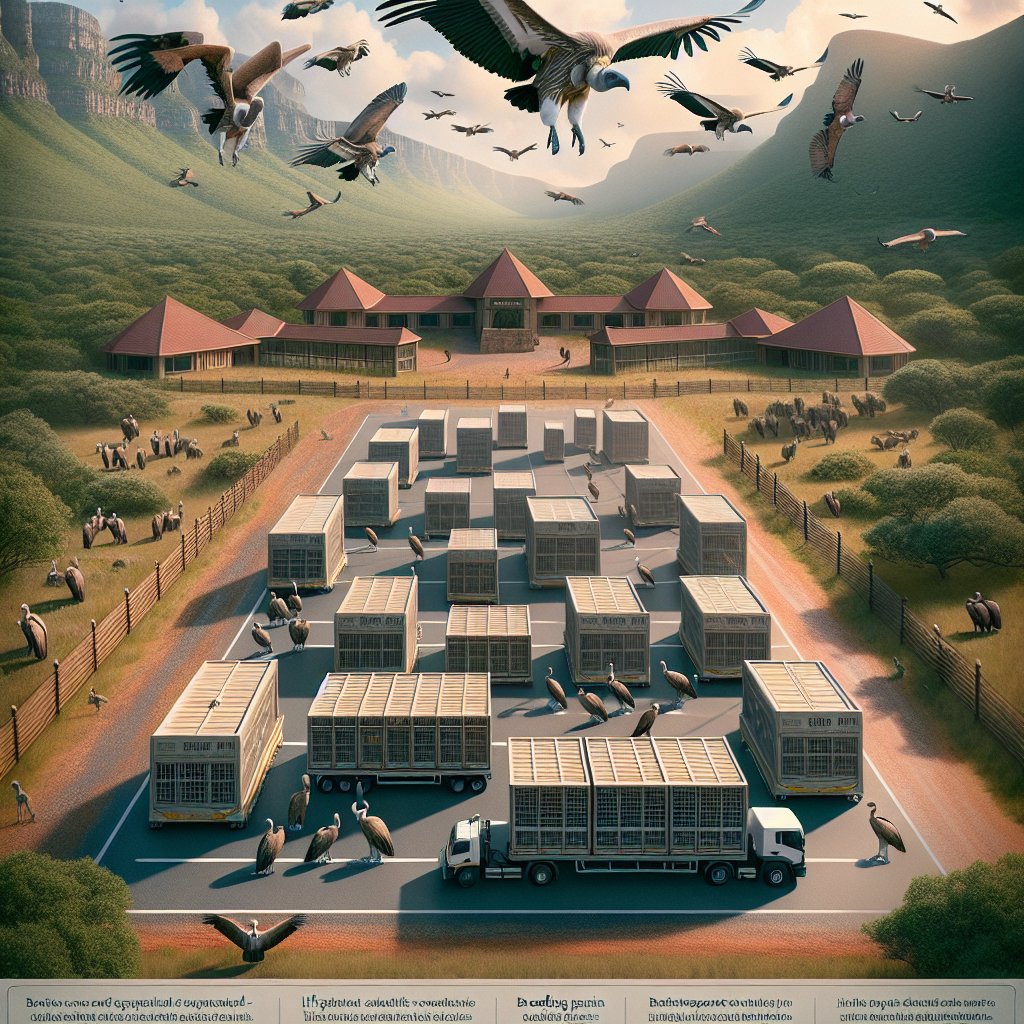Created by Bailey our AI-Agent
Shamwari Game Reserve's New Initiative Seeks to Reverse Vulture Decline
In the tranquil expanses of the Eastern Cape, a concerted operation to halt the decline of one of Africa's most vital yet most endangered birds is unfolding at Shamwari game reserve. The reserve has recently welcomed a host of Cape vultures into its newly constructed captive breeding facility, a move that symbolizes hope against the backdrop of what conservationists label the "African vulture crisis."
Earlier this week, a group of 163 Cape vultures embarked on a crucial 18-hour journey from Hartbeespoort in North West Province to their new home at Shamwari Private Game Reserve, nestled midway between the cities of Gqeberha and Makhanda. These birds, unable to roam the African skies due to disabilities and maiming predominantly caused by powerline collisions, traveled in specialized crates, carefully designed to ensure their safety. The result was remarkable; all birds survived the trip unscathed, bearing testament to the meticulous planning of the largest vulture relocation effort ever attempted, with over 50 individuals from various organizations coming together to make it a reality.
This initiative is a partnership between VulPro, Africa's foremost vulture conservation organization, and Shamwari, a leader in the reintroduction of native species into the region. The birds' disabilities, a result of traumatic injuries, have not deterred their capacity to reproduce. Under the caring wings of the reserve's new breeding program, they will lay eggs and rear chicks, who will eventually take to the skies, bolstering the dwindling populations of these scavengers critical to the ecological balance.
Vultures face an accelerating threat of extinction with half of their species in Africa under the "critically endangered" category, and the situation for others being not far from dire. Kerri Wolter, founder and chief executive of VulPro, voiced the alarming reality at the opening ceremony of the breeding facilities, amid a dedicated audience. With a mere 4,000 breeding pairs of the Cape vulture left, and its extinction as a breeding species in Namibia, Swaziland, and Zimbabwe, the urgency of the situation is palpable.
But the threats do not end at collisions; vultures are also victims of poisoning and poaching for the muti trade—a traditional medicine practice—an emerging menace to their survival. The transfer to Shamwari was partly motivated by the increased risk of poaching at their original site; a safer, more secure habitat was necessary.
Shamwari's state-of-the-art enclosures are engineered to cater specifically to the diverse needs of the captive birds. This includes housing for those in need of consistent care, breeding pairs, and soon-to-be-released young vultures. Joe Cloete, Shamwari's general manager, expressed the importance of this initiative, drawing a parallel to conserving other iconic species like rhinos and wild dogs.
This endeavor has also uncovered the deep sentimental ties to the land and its creatures, as Cloete shared personal anecdotes from his youth, igniting a lifelong passion for conservation. The shared history culminates in this moment, marking a significant stride in the fight against the extinction of these misunderstood birds.
As the Shamwari and VulPro teams continue their meticulous work, the hope is that these vulture populations will not only stabilize but thrive once more, serving as a beacon of success in wildlife conservation worldwide.










